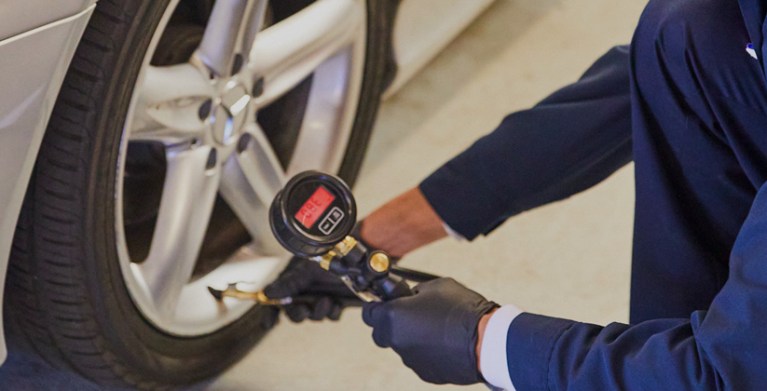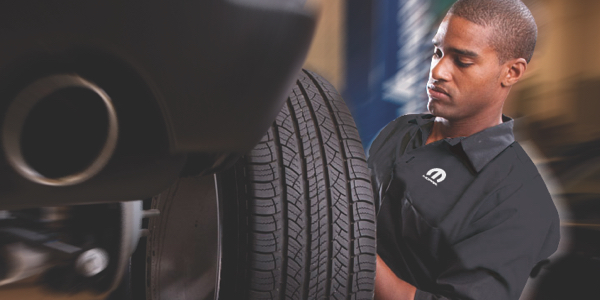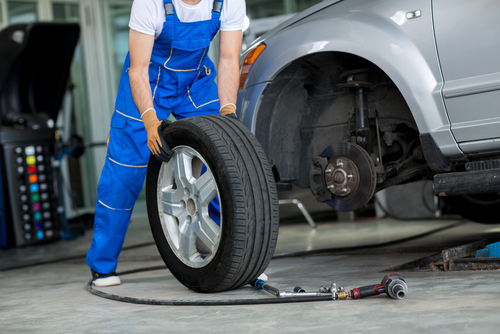Drive with Confidence: GMC Tires Service at Morris Tires
Drive with Confidence: GMC Tires Service at Morris Tires
Blog Article
Tire Solution: The Effect of Climate Condition
When it concerns making sure ideal performance and safety and security on the road, recognizing the influence of weather on tire service is vital. From scorching warmth to icy roads, each weather condition component can significantly influence tire capability and overall driving experience. By diving right into the effects of varying climate condition on tires, chauffeurs can get important insights that might boost their lorry's efficiency and durability. In this conversation, we will check out the complex connection in between weather and tire solution, clarifying the value of weather-specific tire maintenance methods and factors to consider.
Warm and Tire Performance
When exposed to heats, tires experience changes in efficiency that can significantly influence lorry safety and security and handling. The heat produced from extended driving or heat problems causes the tire rubber to soften, leading to reduced walk life and boosted wear. As the rubber ends up being softer, the tire's hold on the road decreases, influencing braking distances and general grip. In extreme instances, extreme warmth can even cause tire blowouts, presenting a severe safety danger to the car and its owners.

Winter Results
Winter problems can have a significant effect on tire efficiency and security. As temperature levels decrease, tire rubber can harden, causing lowered grip on icy or snow-covered roads. In winter, tires might also lose atmospheric pressure more swiftly, which can affect dealing with and gas performance. In addition, chilly temperature levels can trigger tire sidewalls to stiffen, raising the threat of damage from craters or other roadway risks.
To alleviate the impacts of cold weather condition on tires, it is important to consistently inspect tire pressure and inflate them to the supplier's advised levels. Making use of winter season or all-season tires developed for cool weather condition problems can also boost traction and grasp on icy or snowy roads. Proper tire upkeep, consisting of routine inspections for wear and damages, becomes a lot more important during colder months to ensure ideal efficiency and safety and security.
Rainy Issues Impact
Tires with worn-out treads are extra prone to hydroplaning, where a layer of water builds up between the tire and the road surface, leading to loss of grip. To combat this, vehicle drivers should on a regular basis evaluate their tires for ample tread deepness and think about spending in tires particularly designed for wet problems.
Moreover, stormy weather condition can additionally reduce presence, making it testing for drivers to see the roadway ahead plainly (GMC Tire Service). In such problems, it is important to change driving rates as necessary and preserve a risk-free complying with range to enable sudden quits. Appropriately inflated tires can also help in preserving control on wet roadways by supplying far better handling and grip
Snow and Tire Safety And Security
Snow-covered roadways posture one-of-a-kind challenges for chauffeurs, emphasizing the relevance of proper tire option and upkeep. When driving in snowy problems, having the right tires can make a substantial difference in safety and security and performance. Wintertime tires are designed with special rubber substances and step patterns to provide far better grip on snow and ice compared to all-season tires. The deeper treads and sipes of winter season tires help hold the road better, lowering the risk of sliding and sliding.

It is vital to comply with supplier instructions when making use of and mounting tire chains to avoid damage to the tires and vehicle. By picking the best tires, maintaining correct inflation, and considering extra traction help like tire chains, chauffeurs can improve their security when navigating snow-covered roads.
Weather-Related Tire Maintenance
Weather-related tire upkeep encompasses a range of methods intended at making sure ideal tire function and durability in various weather condition circumstances. One crucial element of weather-related tire upkeep is tire pressure regulation. Inspecting tire tread frequently and changing tires when walk wear reaches a certain deepness is crucial for preserving traction and stability in damaging weather.
Final Thought
In final thought, try this website climate problems have a significant effect on tire performance and safety. From heat affecting tire pressure and put on to cool climate lowering grip, it is essential to think about the weather condition when maintaining and utilizing tires.
In this conversation, we will certainly explore the intricate relationship between weather conditions and tire solution, shedding light on the significance of weather-specific tire upkeep practices and considerations.

Report this page